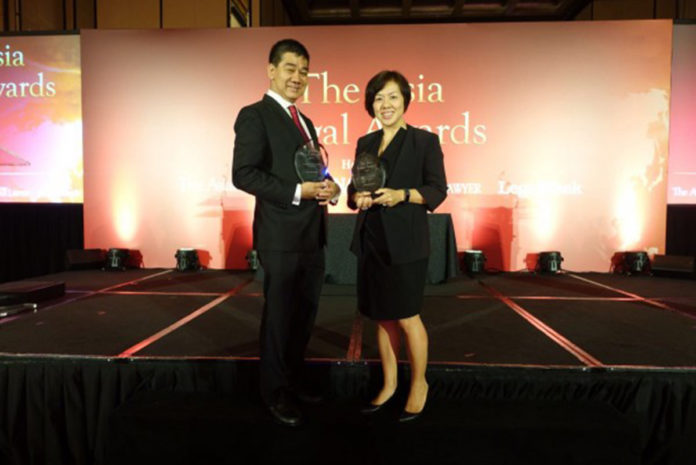The firm that defended local business Sanum Investments in its case against the Laos Government has won the Dispute Resolution Firm of the Year in the Asia Legal Awards 2017 for its efforts.
The firm, Singapore-based Wong Partnership, won a total of three awards this year for participation in a US$1.5 billion (MOP12 billion) liquidation of seafood company Pacific Andes – earning it part of the Finance Deal of the Year: Restructuring & Insolvency Award, as well as the Employment Firm of the Year in this year’s honours.
The case which led to the group taking home the dispute resolution award originates in Sanum Investment, a locally based company which ran the Savan Vegas Hotel & Casino in the Savannakhet Province in Laos, which was seized by the Laos Government due to an alleged retroactive assessment of over US$70 million in taxes. The complex, following its seizure, was sold to local gaming operator Macau Legend, which opened its latest property in the MSAR on Tuesday. The sale was conducted for an estimated 16.8 per cent of the price attributed to the property by its former operator.
Decisions, decisions
Wong Partnership managed to reverse a decision made by the Singapore High Court, in the Court of Appeal of the city, ruling that Macau would be included under a bilateral investment treaty (BIT) made between China and Laos in 1993. This BIT affected the claims of capital investment benefit losses through unfair taxes by the Laos Government made by Sanum against the country’s body.
The ruling by the court allowed Macau to be included under the ‘moving treaty frontier’ (MTF) despite Macau only reverting to China in 1999, and negated letters provided by the Laotian Government proving correspondence between Laotian and Chinese diplomats stating that the treaty did not apply.
As published on the Singapore Academy of Law website, the record of the case ruling notes that ‘we find first that the PRC (Peoples Republic of China)-Laos BIT does apply to Macau and […] that the Tribunal has subject matter jurisdiction over the claims brought by Sanum.’
“Simply put, because a treaty is binding in respect of the entire territory of a State, the MTF Rule presumptively provides for the automatic extension of a treaty to a new territory as and when it becomes part of that State,” Chief Justice Sundaresh Menon wrote, as quoted by the Straits Times.
This case “marked the first time that Singapore courts have had to review an investment treaty arbitral award as well as to deal with the interpretation of a BIT to which Singapore is not a party,” noted Senior.
In addition, early last month Sanum was allowed by a Federal Court of Australia judge to serve its petition to enforce a US$200 million award issued by the Singapore International Arbitration Centre against ‘two Laotian companies involved in the resort and gambling business,’ notes Law 360, regarding a separate casino the group was involved in relating to a slot machine club in Vientiane.
The local business has multiple suits pending in a variety of courts relating to its operations and partnerships in Laos.
























